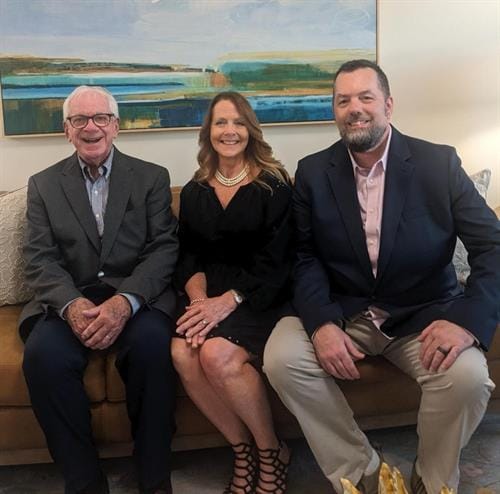
Mark Daley & Ken And Laura O’Dea
Serving Metro Charlotte, Pineville, Matthews, Mecklenburg and Union County
As the population ages, the need for specialized care for individuals with dementia has become increasingly important. In Charlotte, North Carolina, a variety of dementia living facilities are available, offering tailored services to meet the unique needs of residents. This article explores the different types of facilities, their services, and what families should consider when choosing the right environment for their loved ones.
Understanding Dementia Care
Dementia is not a single disease but a term that encompasses various cognitive impairments affecting memory, thinking, and social abilities. As the condition progresses, individuals may require assistance with daily activities, making specialized living facilities essential. These facilities are designed to provide a safe and nurturing environment, where residents can maintain their dignity while receiving the necessary care tailored to their unique needs.
Dementia care focuses on creating a supportive environment that promotes dignity and quality of life. Facilities in Charlotte are designed to cater specifically to the needs of those with dementia, ensuring that residents receive appropriate medical care, social interaction, and emotional support. Staff members are often trained in the best practices for dementia care, which includes understanding the nuances of communication and behavior management, allowing them to effectively engage with residents and provide comfort during challenging moments.
Types of Dementia Living Facilities
In Charlotte, families can choose from several types of dementia living facilities, each offering different levels of care and support. These include independent living, assisted living, memory care, and skilled nursing facilities. Each option is tailored to meet the varying needs of individuals at different stages of dementia, ensuring that they receive the appropriate level of care as their condition evolves.
Independent living facilities provide a community atmosphere for seniors who are relatively self-sufficient but may benefit from social engagement and some assistance. These facilities often feature communal dining areas, activity rooms, and organized outings that encourage residents to participate and connect with one another. Assisted living facilities offer more comprehensive support, including help with daily tasks like bathing, dressing, and medication management. Here, residents can enjoy a blend of independence and support, allowing them to maintain their routines while also receiving help when needed.
Memory care facilities are specifically designed for individuals with dementia, featuring secure environments and specialized programs tailored to cognitive impairments. These facilities often incorporate therapeutic activities that stimulate cognitive function, such as art therapy, music therapy, and reminiscence therapy, which can help residents engage with their memories and improve their overall well-being. Skilled nursing facilities provide the highest level of medical care, often for those with advanced dementia who require constant supervision and medical attention. In these settings, a team of healthcare professionals, including nurses and therapists, work collaboratively to manage complex medical needs while also focusing on the emotional and psychological aspects of care, ensuring that residents feel valued and respected throughout their stay.
Key Features of Dementia Living Facilities
When evaluating dementia living facilities in Charlotte, several key features should be considered. These elements can significantly impact the quality of life for residents and the peace of mind for families.
Safety and Security
Safety is a paramount concern for families considering dementia care options. Many facilities are designed with secure entrances and exits to prevent wandering, a common behavior among individuals with dementia. Additionally, staff members are trained to recognize and respond to safety concerns, ensuring a secure environment for all residents.
Emergency response systems, surveillance cameras, and regular safety drills are also standard practices in these facilities, providing an added layer of security for residents and their families.
Personalized Care Plans
Each resident’s experience in a dementia living facility should be tailored to their specific needs. Facilities typically develop personalized care plans that take into account the individual’s medical history, cognitive abilities, and personal preferences.
These care plans are regularly reviewed and adjusted as necessary, ensuring that residents receive the appropriate level of care throughout their journey with dementia. This personalized approach not only enhances the quality of care but also fosters a sense of autonomy and dignity among residents.
Engaging Activities and Socialization
Social interaction and engagement are crucial for individuals with dementia. Facilities in Charlotte often provide a range of activities designed to stimulate cognitive function and promote socialization. These may include art therapy, music therapy, gardening, and group outings.
Engaging activities help residents maintain a sense of purpose and belonging, which can significantly improve their overall well-being. Facilities that prioritize socialization often see better outcomes in terms of resident satisfaction and mental health.
Choosing the Right Facility
Selecting a dementia living facility is a significant decision that requires careful consideration. Families should take the time to visit multiple facilities, ask questions, and assess the environment before making a choice.
Assessing Staff Qualifications
The qualifications and training of staff members play a crucial role in the quality of care provided in dementia living facilities. Families should inquire about staff-to-resident ratios, training programs, and ongoing education opportunities for caregivers.
Compassionate and knowledgeable staff can make a significant difference in the daily lives of residents. Observing interactions between staff and residents during visits can provide valuable insights into the facility’s culture and approach to care.
Evaluating Amenities and Services
Different facilities offer varying amenities and services, which can impact residents’ comfort and happiness. Families should consider factors such as meal options, transportation services, and recreational facilities when evaluating potential living arrangements.
Additionally, some facilities may offer specialized programs, such as memory enhancement activities or therapy sessions, which can further enrich the residents’ experience. Understanding what each facility provides will help families make an informed decision.
Cost Considerations
The cost of dementia living facilities can vary widely based on location, services offered, and the level of care required. Families should be prepared to discuss financial options, including insurance coverage and potential assistance programs.
It is essential to have a clear understanding of the pricing structure, including any additional fees for specialized services. Budgeting for long-term care can be challenging, so exploring all financial avenues is crucial for families considering these facilities.
Community Resources and Support
Charlotte offers a wealth of resources for families navigating dementia care. Local support groups, educational programs, and community organizations can provide valuable assistance and information.
Connecting with other families facing similar challenges can provide emotional support and practical advice. Many organizations also offer workshops and seminars on dementia care, helping families stay informed about the latest developments and best practices.
Advocacy and Awareness
Advocacy for individuals with dementia is vital in promoting awareness and improving care standards. Community initiatives often focus on educating the public about dementia, reducing stigma, and advocating for better resources and support systems.
Conclusion
Choosing a dementia living facility in Charlotte, NC, is a significant decision that requires careful consideration of various factors, including safety, personalized care, and social engagement. By exploring the available options and utilizing community resources, families can find a supportive environment that meets the unique needs of their loved ones.
As the demand for dementia care continues to grow, facilities in Charlotte are evolving to provide the highest quality of care, ensuring that individuals with dementia can lead fulfilling lives with dignity and respect. With the right support, families can navigate this challenging journey with confidence and peace of mind.
If you’re seeking the ideal dementia living facility in Charlotte, NC, for your loved one, look no further. Assisted Living Locators understands the importance of finding a safe, personalized, and socially engaging environment that fits your budget. With options ranging from $2,500 to $20,000 per month, we are committed to locating the perfect senior living care solution in Metro Charlotte, including Pineville, Matthews, Mecklenburg, and Union County. Our personalized approach and extensive expertise ensure that your loved one will receive comfort and excellent care. Don’t navigate this journey alone. Get Local Help from Assisted Living Locators and let us assist you in finding the right care for your budget and needs.









